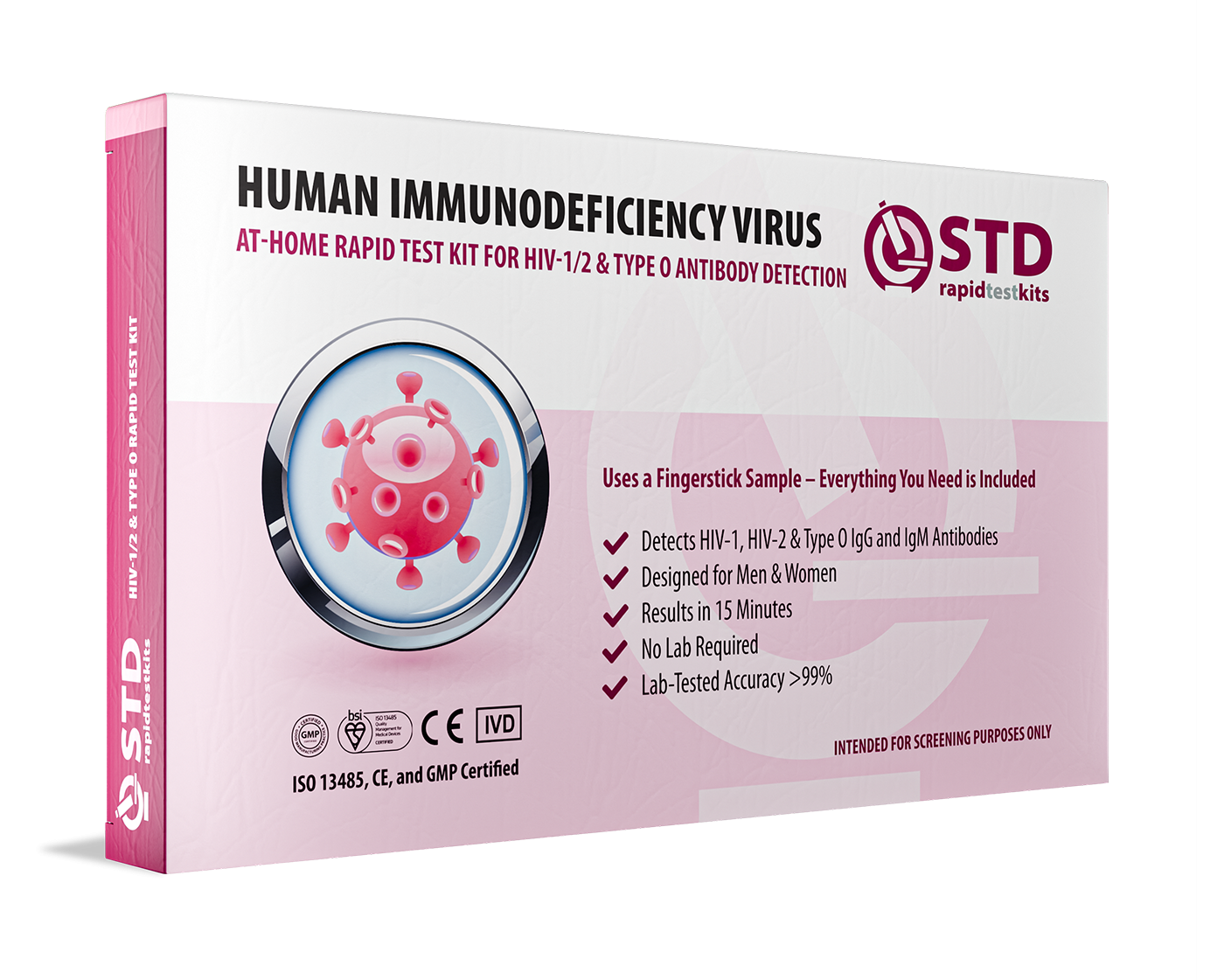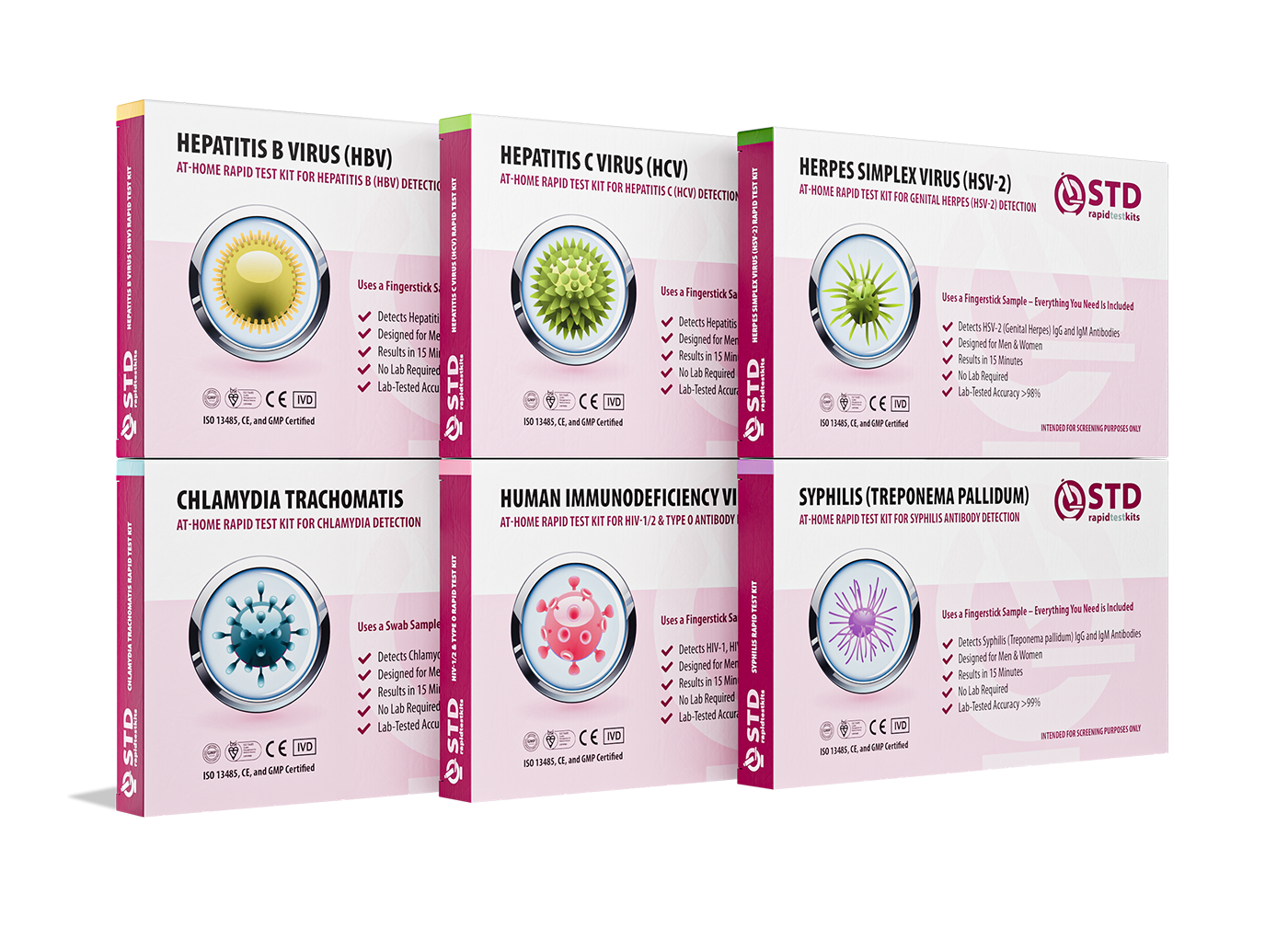Quick Answer: You can get HIV even if you use condoms consistently. Structural inequalities, partner viral load, imperfect condom use, and gaps in testing access make HIV risk higher for some, especially Black gay men, regardless of individual behavior.
When It Doesn’t Add Up: The Symptom That Starts the Spiral
It started with a rash. Not even a big one, just a few pinkish spots on his thigh that didn’t itch, didn’t hurt, didn’t do anything but exist. Brian figured maybe he had used a different detergent. Maybe the lube from last week’s hookup was to blame. He only Googled it because his anxiety wouldn’t shut up. “STD rash vs heat rash” was what he typed first. Then he spiraled.
He learned that early HIV symptoms, if they show up at all, can look like the flu. Or not. A low-grade fever, some joint aches, maybe a swollen lymph node under your jaw. They come and go. Sometimes they’re mistaken for allergies. Or skipped entirely. Some men don’t notice anything until months later, when fatigue or night sweats set in. Others never get symptoms at all. The virus moves quietly in the background, replicating in blood, living in semen. You feel fine, until a routine test says otherwise.
That’s what made it worse. Brian didn’t feel sick. He didn’t look sick. But the test was positive. And every health message he’d ever absorbed told him that HIV meant you were reckless. Irresponsible. Dirty. None of which described him. He got tested regularly. He had the safer-sex talk. He used protection. And still, HIV.
“I Did Everything Right”, Why That Still Isn’t Enough
Let’s be clear: condoms work. According to the CDC, when used correctly and consistently, condoms reduce the risk of HIV transmission by approximately 80%. That’s not 100%. And that statistic assumes perfect conditions: perfect application, no friction tears, no slippage, no late removal. In real life, things get messy. Especially during anal sex, where the tissue is more vulnerable to microtears, even when lube is involved.
But that’s not the whole story. The real reason HIV continues to hit Black gay and bisexual men the hardest, even among those who consistently use condoms, has less to do with what individuals are doing and more to do with what’s happening around them. Structural violence is a better predictor of HIV risk than personal behavior. It’s a tough pill to swallow, especially when you've done everything “right.” But the numbers don’t lie.
In the U.S., Black men who have sex with men (MSM) account for roughly 25% of new HIV diagnoses, despite being only 1% of the population. A 2021 study in the Journal of Racial and Ethnic Health Disparities confirmed what many have lived: Black MSM are more likely to contract HIV even with fewer sexual partners and higher reported condom use than their white counterparts. Why? Because individual behavior doesn’t happen in a vacuum. It happens in a system.
Imagine a social network where the background rate of HIV is already high, where access to PrEP is low, and where stigma prevents open conversations about testing. Now layer in clinics that aren’t queer-friendly, housing instability, and fear of disclosing status due to racism or violence. That’s the environment Brian, and so many others, are trying to navigate. Condoms help. But they can’t fix all of that.

People are also reading: The Role of Condoms and Safe Practices in STD Prevention
The Condom Was On, But So Was the Viral Load
Tyrell had been undetectable for nearly three years. On meds. Doing what he needed to do. Still, when he told Marcus before they hooked up, Marcus flinched. “Wait, you have HIV?” The date ended early. Tyrell went home pissed and quiet. He’d done the work. He took his pills. His doctor had confirmed it again last month: undetectable. Which means untransmittable. U=U is real science. But the stigma didn’t care. The fear still showed up in other people’s eyes.
And sometimes, the viral load isn’t undetectable. Sometimes a partner hasn’t tested in months. Or never tested. Or doesn’t know his ex still sleeps over sometimes. Condom or not, HIV exposure risk is higher when the community viral load is high, and in predominantly Black gay sexual networks, it is. HIV.gov confirms that even when behavior is the same, outcomes differ. That’s structural risk, not personal failure.
It’s why you can sleep with someone once, condom in place, lube used, and still get HIV. Because it’s not just about the act. It’s about the surrounding conditions. Who has access to care. Who gets screened. Who feels safe asking for a test. Who the system fails quietly, again and again.
Check Your STD Status in Minutes
Test at Home with RemediumHIV Rapid Test Kit

 For Men & Women
For Men & Women Results in Minutes
Results in Minutes No Lab Needed
No Lab Needed Private & Discreet
Private & DiscreetOrder Now $33.99 $49.00
Let’s Talk About Oral, and Other “Low Risk” Moves
If you’ve ever thought, “I only gave head, so I should be fine,” you’re not alone. And you’re not stupid. But here’s what’s true: HIV through oral sex is low risk, not no risk. Especially if there are mouth sores, bleeding gums, or ejaculate swallowed. The virus can enter the bloodstream that way, especially if your partner has a high viral load.
Brian didn’t remember anything unusual. No blood. No sore throat. No cuts. But it had been oral only, and now he had HIV. His doctor said it was possible, but also reminded him of something deeper: many people misremember or reframe sex acts over time. You might think the condom stayed on the whole time, but what about during withdrawal? Was there rubbing without it beforehand? The brain doesn’t keep a timestamped reel of hookup logistics. Especially not when alcohol, nerves, or shame are in the mix.
What this means is that “low risk” doesn’t mean “zero risk.” And blaming yourself, or your memory, for missing the moment it happened won’t make things clearer. Because it may never be clear. HIV doesn’t need a moral failure to happen. Sometimes, it just needs a body. A moment. And a system that’s already stacked against you.
Testing Is a Strategy, Not a Confession
We don’t talk enough about testing as an act of care. Not just for your partners, but for yourself. Brian only found out because he had tested regularly. That test didn’t “give him” a diagnosis, it gave him a chance to act. To protect his body. To start treatment early. Within weeks of diagnosis, he was on antiretroviral therapy. Within three months, he was undetectable. His sex life didn’t end. It evolved.
That part matters. Because HIV isn’t a death sentence anymore, but silence can be. The earlier you test, the earlier you treat. And the earlier you treat, the easier it is to stay healthy, to stay sexy, to stay connected. Whether you're negative and want to stay that way, or positive and want to protect yourself and others, testing is the pivot point. It’s not about “getting caught.” It’s about taking control.
HIV Doesn’t End Your Sex Life, It Changes the Rules
Jeremiah had been living with HIV for six years when he met Andre. “I told him before we ever met up,” he says. “I’m undetectable, I’m on meds, and I’m good if we use condoms or not. Your call.” Andre paused. Then said, “Thanks for telling me. Let’s talk about what feels good.” That was it. No panic. No rejection. Just consent, care, and clarity. It wasn’t always like that for Jeremiah, but when it was, it stuck with him. “HIV didn’t kill my sex life,” he says. “Shame almost did.”
It bears repeating: people living with HIV can, and do, have fulfilling, healthy, hot-as-hell sex lives. Study after study confirms that if your viral load is undetectable, you can’t pass it on. Combine that with condoms or PrEP for partners, and you're looking at layers of protection, not barriers to pleasure.
But sex positivity doesn’t mean pretending fear doesn’t exist. It means honoring it and responding with facts. If you’re scared, you’re not broken. You’re trying to protect yourself. But don’t let that fear isolate you. Learn what’s real. Ask questions. Communicate before the clothes come off. And remember, your boundaries are valid, but so is your partner’s truth. HIV status doesn’t define your worth. It doesn't erase your desire. It just changes how you care for yourself and each other.

People are also reading: The Emotional Impact of a Herpes Diagnosis: Coping and Moving Forward
Why PrEP Isn’t Reaching Everyone, And Why That Matters
PrEP changed everything. One pill a day, over 99% effective at preventing HIV. But here’s the problem: only 11% of Black MSM who could benefit from PrEP are actually taking it, compared to nearly 45% of white MSM. The drug is powerful, but it’s not equally distributed. And that’s not because Black men don’t care. It’s because too many systems still don’t care about them.
Doctors who don’t bring it up. Clinics that don’t feel safe. Insurance that doesn’t cover it. Fear of being labeled “high risk” just for asking. Jeremiah tried twice to get on PrEP before his diagnosis. Both times, the provider asked if he was “really sure he needed it.” The third time, it was too late. Now, he talks to anyone who will listen: “If a doctor shuts you down, try another. Don’t let one closed door be the last one.”
The reality is this: until PrEP is as easy to access in Atlanta’s West End as it is in Chelsea, the playing field isn’t level. You can do everything “right” and still get left behind. That’s why prevention has to be paired with access. With equity. With honesty about who gets protected and who gets ignored. Black gay men deserve more than scraps of safety. They deserve the whole damn pie.
Check Your STD Status in Minutes
Test at Home with Remedium6-in-1 STD Test Kit

 For Men & Women
For Men & Women Results in Minutes
Results in Minutes No Lab Needed
No Lab Needed Private & Discreet
Private & DiscreetOrder Now $119.00 $294.00
For all 6 tests
Take the Power Back: Testing Is Where It Starts
If your last test was over three months ago, it’s time. Not because you did something wrong, but because you deserve to know. Whether you’re dealing with symptoms, a scare, or just routine care, testing is information. And information is power.
You don’t have to wait for a clinic appointment. This at-home combo STD test kit screens for the most common infections, including HIV, with privacy and speed. No waiting room. No weird stares. Just answers, on your terms.
Your health is yours. Your sex life is yours. Your story is yours. Don’t let fear or stigma write the ending. Start with a test. Then write what comes next, with facts, with power, and with pride.
FAQs
1. Can HIV really happen even if I did everything “right”?
Yes. Even with consistent condom use, HIV can still be transmitted—especially if your partner has a high viral load or if you live in a community with limited access to testing, treatment, or prevention tools like PrEP.
2. What makes Black gay men more likely to get HIV?
It doesn't matter what you do. Black MSM face systemic inequities: less access to PrEP, a higher community viral load, racism in healthcare, and a stigma around testing. These structural factors raise the risk, no matter how careful a person is.
3. How long should I wait to get tested for HIV after having sex?
After 28 days, HIV tests are most accurate, but some can find the virus sooner. To be safe, test yourself three weeks and three months after you might have been exposed.
4. Is it possible to get HIV from oral sex?
It's not common, but it can happen. If one partner has cuts, sores, gum disease, or if ejaculation happens in the mouth, the risk goes up. It's still less risky than anal or vaginal sex, but not zero.
5. If I use condoms every time, do I still need PrEP?
PrEP adds another layer of protection. Condoms can break or slip, and not every partner may be honest about their status. PrEP helps fill in the gaps—and can be empowering, not shameful.
6. What does “undetectable” mean?
If someone living with HIV takes medication and their viral load becomes undetectable, they cannot transmit HIV sexually. This is known as U=U (Undetectable = Untransmittable)—and it’s scientifically proven.
7. How do I ask a partner about HIV without making it weird?
Try being direct but nonjudgmental: “When was your last test?” or “Are you on PrEP or undetectable?” Most people appreciate the honesty—and it helps build trust and consent before anything physical happens.
8. Is PrEP only for people with a “lot” of partners?
No. PrEP is for anyone who wants peace of mind. You don’t need to justify your sex life to deserve protection. Whether you have one partner or many, you deserve options that keep you safe and confident.
9. Will people judge me if I test positive?
Maybe. But the people who matter won’t. And the people who judge often don’t understand how HIV really works. You’re not broken. You’re not dirty. You’re living—stronger, smarter, and still deserving of love.
10. Where can I get tested without judgment or hassle?
Right here. Order a rapid HIV and STD test kit online and take control privately, from home. It’s fast, accurate, and designed for people who want answers—not shame.
You Deserve Answers, Not Assumptions
There’s nothing reckless about wanting to love, to connect, to feel safe. The system may try to convince you otherwise, but your body, your pleasure, your health are yours. And protecting them doesn’t mean being perfect. It means being informed.
If you’re reading this because you’re scared, confused, or ashamed, know this: there is no shame in being human. You are not a risk. You are not broken. And HIV doesn’t define you. What you do next, though? That’s power.
Don’t wait and wonder, get the clarity you deserve. This at-home combo test kit checks for the most common STDs discreetly and quickly.
Sources
1. CDC – Preventing HIV with Condoms
2. Consistent Condom Use Reduces HIV by ~80% (PubMed Central review)
3. PARTNER 2 Study: No HIV Transmission with Undetectable Viral Load
4. AIDSmap – Oral Sex HIV Risk: Low But Not Zero
5. HIV Disparities in Black MSM: Structural Barriers (PMC Article)










